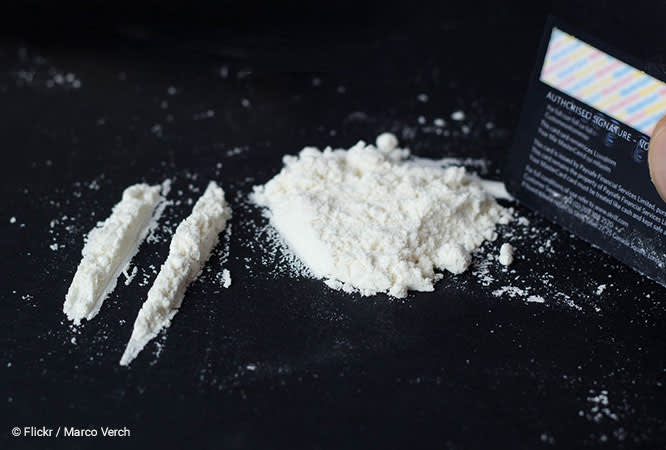Making the decision to stay sober is an incredibly powerful and courageous step towards leading a healthier, more fulfilling life. It marks the beginning of a transformative journey that, while challenging at times, holds the potential for profound personal growth, improved mental and physical well-being, and the opportunity to rebuild relationships and restore a sense of purpose.
However, choosing to stay sober is not always an easy task, and for many individuals, it often requires the support of professionals to ensure long-term success. A dedicated detox program can play a crucial role in this process, as it provides a safe and structured environment to help individuals rid their bodies of harmful substances and begin the healing process.
Detoxification is not only about physical healing but also about preparing the mind and body for the challenges that come with recovery. This article will delve into how detox programs work, the various types of detox options available, and the importance of medical supervision during this critical phase. Additionally, it will offer practical strategies for maintaining sobriety, including developing healthy coping mechanisms, building a strong support network, and creating a sustainable routine that supports long-term success.
Lastly, we will explore the numerous benefits of deciding to stay sober, from improved emotional stability and mental clarity to enhanced physical health and a renewed sense of personal empowerment. By understanding the importance of detox and taking proactive steps to stay sober, individuals can set themselves on the path to lasting recovery and a brighter future.

Understanding the Role of Detox in Sobriety
Detoxification is a critical first step for anyone looking to overcome substance dependency. It involves safely removing toxins from the body while managing withdrawal symptoms under medical supervision.
How Can a Detox Help Me Stay Sober?
A dedicated detox program provides a structured and safe environment to begin the recovery process. With medical professionals monitoring the process, individuals can manage withdrawal symptoms effectively, reducing the risk of relapse. Detox also lays the foundation for long-term sobriety by helping you stabilize physically and mentally.
Comprehensive Support During Detox
Detox centers offer not only medical intervention but also emotional support through counseling and therapy. This comprehensive care helps address the psychological aspects of addiction, preparing you for the challenges of deciding to stay sober.
Strategies to Stay Sober After Detox
Once detox is complete, it is important to implement strategies that reinforce your decision to stay sober.
Create a Solid Support Network
Building relationships with supportive family members, friends, or support groups can provide encouragement and accountability. Regularly attending meetings with groups like Alcoholics Anonymous can offer community and shared experiences.
Develop Healthy Habits
Establishing routines that promote physical and mental well-being is crucial to your commitment to stay sober. This includes regular exercise, a balanced diet, adequate sleep, and mindfulness practices such as meditation or yoga. These habits help sustain your energy and focus on sobriety.
Focus on Personal Growth
Engaging in personal development activities such as learning new skills, setting personal goals, or engaging in hobbies can provide a sense of accomplishment and direction. Keeping busy with fulfilling activities helps redirect focus away from substance use.

Activities to Help You Stay Sober
Participating in positive activities plays a pivotal role in maintaining sobriety by providing joy and purpose.
Physical Exercise
Exercise releases endorphins that improve mood and reduce stress. Whether it’s running, joining a sports team, or participating in dance classes, staying active supports both physical and mental wellness in recovery.
Creative and Recreational Pursuits
Activities like painting, writing, or playing an instrument provide a creative outlet for emotions and thoughts. Recreation, such as hiking or traveling, can offer new experiences that enrich life without substances.
Community Service
Volunteering or participating in community initiatives fosters a sense of purpose and connection. Contributing to the community enhances self-esteem and reinforces the positive impact of staying sober.
Benefits of Deciding to Stay Sober
The decision to stay sober brings numerous advantages, improving all aspects of life.
Improved Physical Health
Abstaining from substance use is a transformative decision that not only helps individuals reclaim their mental and emotional well-being but also provides significant physical health benefits. When a person ceases using harmful substances, the body begins a process of healing and regeneration that can result in long-term improvements across various systems and functions.
Initially, the body works to detoxify itself, flushing out the toxic substances that have accumulated over time. This detoxification process gives the organs, tissues, and cells a chance to recover, repair, and function more optimally.
As a result, the benefits of sobriety are far-reaching and profound. One of the most immediate improvements is in organ function. The liver, which plays a central role in detoxifying the body, begins to regenerate after periods of alcohol or drug use, leading to better digestion, more efficient nutrient absorption, and a reduced risk of liver disease.
The cardiovascular system also benefits from abstinence, with a decrease in blood pressure, reduced inflammation, and a healthier heart overall. Additionally, the respiratory system can improve as the lungs begin to recover from the effects of smoking or other substance use, leading to improved breathing and better overall stamina.
Beyond the healing of specific organs, the body also experiences a general increase in energy levels. With substances no longer depleting vital nutrients and disrupting normal bodily functions, individuals often report feeling more energized, focused, and able to engage in daily activities with greater enthusiasm. Regular physical activity becomes easier as stamina improves, further contributing to overall health and vitality.
Furthermore, abstinence boosts the immune system, allowing the body to better fight off infections and illnesses. Substance use can weaken immune function, leaving individuals more vulnerable to sickness. However, as the body heals from the impacts of drugs or alcohol, the immune system becomes more resilient, making it easier to maintain good health and recover from illnesses more swiftly.
Overall, the decision to stay sober creates an environment within the body where healing can occur on a cellular level, leading to sustained physical health improvements, higher energy levels, and greater immunity. These benefits, in turn, support a more vibrant and fulfilling life, making sobriety a powerful choice for individuals looking to take control of their health and well-being.

Enhanced Mental and Emotional Well-being
Sobriety can profoundly improve mental clarity, stability, and mood. When a person is no longer caught in the grip of addiction, the fog that often clouds their thoughts and judgment begins to lift, allowing for greater focus and clearer decision-making.
This newfound clarity can make it easier to navigate daily challenges and respond to life’s stresses with more resilience. The absence of substance use also helps restore emotional stability, as it removes the highs and lows that addiction can cause, leading to a more consistent and balanced mood.
Furthermore, freedom from the cyclical nature of addiction opens up space for a more fulfilling emotional life. Without the constant turmoil and chaos associated with addictive behaviors, individuals are better able to cultivate positive, supportive relationships.
As emotional regulation improves, they can engage more authentically with others, leading to deeper connections and a greater sense of belonging. This shift can also have a profound impact on self-esteem. Sobriety often encourages self-reflection, personal growth, and an enhanced sense of self-worth, as individuals regain control over their lives and actions.
Ultimately, sobriety not only improves overall mental and emotional well-being but also lays the foundation for a more balanced, meaningful, and satisfying life.
Stronger Relationships
Staying sober allows you to rebuild and strengthen personal relationships in ways that might have seemed impossible while struggling with addiction. One of the most significant benefits of sobriety is the opportunity to rebuild trust, which is often damaged during the course of addiction.
Addiction can cause individuals to make choices that hurt loved ones, whether through dishonesty, broken promises, or emotional distance. As sobriety takes hold, a person can begin to repair these rifts by consistently demonstrating reliability, accountability, and integrity. Over time, this helps restore the trust that is essential to healthy relationships.
Communication also improves dramatically in sobriety. Substance use can interfere with open, honest dialogue, often leading to misunderstandings, arguments, or avoidance. When sober, individuals are more capable of engaging in meaningful conversations, listening empathetically, and expressing themselves without the cloud of substance use affecting their interactions.
This enhanced communication leads to better conflict resolution and deeper emotional connections, which are foundational to any relationship.
As trust and communication improve, the support system surrounding an individual becomes stronger and more dependable. Family and friends who may have felt helpless or frustrated by previous behaviors are often more willing and able to offer love, encouragement, and understanding.
The renewed sense of connection fosters a more nurturing environment in which the person in recovery can thrive. Ultimately, sobriety allows for the creation of a more supportive, loving network—one where the individual is able to give and receive care in a healthy, balanced way, making it easier to face life’s challenges together.
Frequently Asked Questions About Staying Sober
These FAQs address some common concerns for those choosing sobriety:
How Can a Detox Help Me Stay Sober?
Detox provides a safe, medically supervised environment to manage withdrawal symptoms and begin recovery. It helps you stabilize physically and mentally, forming a strong base for long-term sobriety.
What Activities Can Help Me Stay Sober?
Engaging in consistent physical exercise, creative activities, and community service can reduce stress, improve mood, and provide meaningful engagement, all of which support sustained sobriety.
What Are Some Strategies I Can Use to Stay Sober?
Important strategies include creating a strong support network, developing healthy habits, and focusing on personal growth. These strategies ensure a balanced lifestyle that supports sobriety.
Embrace Your Path to Sobriety
Choosing to stay sober and participating in a dedicated detox program can significantly impact your recovery journey. Coupled with effective strategies and engaging in positive activities, you can cultivate a rewarding, substance-free life.
At Asheville Detox Center, we understand that taking the first step toward recovery can feel overwhelming, but you don’t have to do it alone. Our compassionate team is here to provide a safe, supportive, and nurturing environment where you can begin your journey toward sobriety.
We offer personalized detox services that are tailored to your unique needs, ensuring that you receive the care and attention necessary to start healing. With our experienced addiction specialists, we guide you through every phase of the detox process, helping to manage withdrawal symptoms and minimize discomfort.
For more information on detox programs and how they can support your journey to stay sober, consider reaching out to the professionals at Asheville Detox for personalized assistance and resources. For immediate assistance, call us for more information.







